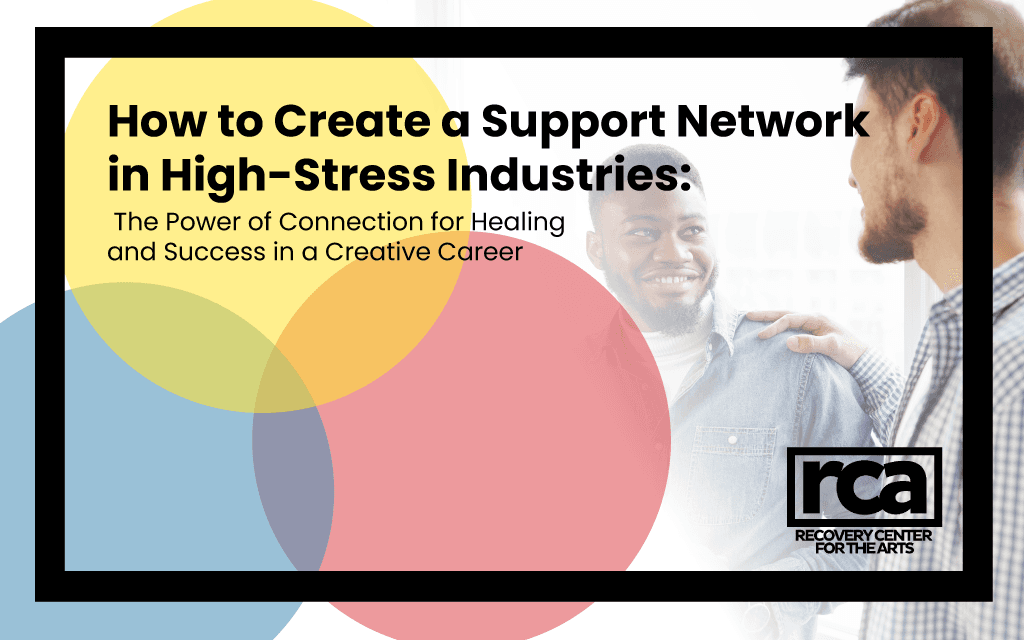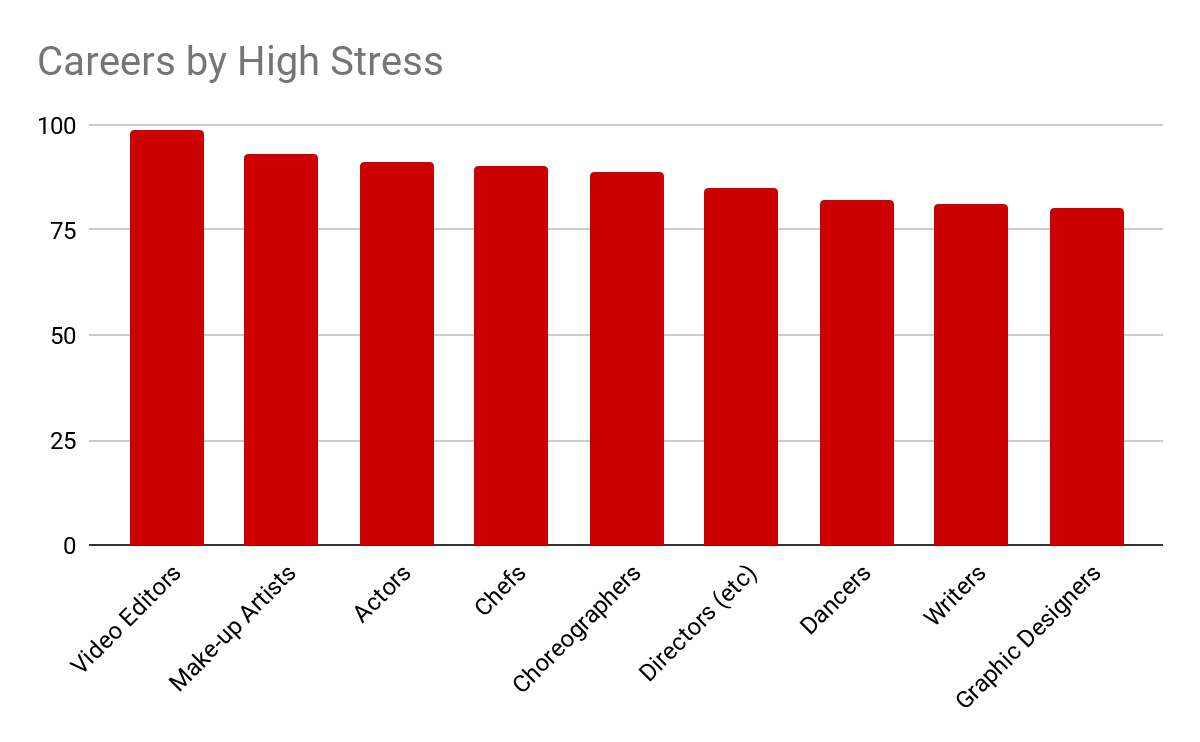
Have you ever been part of a group in school – a reading circle, a study team, or even a group project? Those experiences taught us something essential – we thrive when we connect with others.
But as adults, do we still benefit from group support? Absolutely.
Whether it’s friendship, knowledge, or encouragement, groups create spaces where we can grow and find balance, especially in high-stress industries.
In Arizona, [only 25% of residents say they have the “perfect job.”](https://www.arizonafuture.org/news-events/news/2023/12/arizona-s-jobs-progress-meter-shows-some-strengths-and-weaknesses-remain-post-covid-19/#:~:text=The state average was 26,by Maricopa%2C Gila %26 Pinal.) Work stress, financial pressure, and home-life challenges often weigh us down. That’s why building a peer support network can be transformative for your mental health, career, and creativity. Let’s explore how.
What Is a Peer Support Network and Why Is It Important?
You might already be able to infer it by the name alone, but a peer support network is a group of people in a similar field or career who mitigate your stress, inspire you in your field, and can assist you in navigating other challenges. Not only can they be useful for learning more about the industry you’re in, but they are also great for your mental health.
How Peer Support Can Help With Substance Recovery
For those seeking healing for mental health, substance use, or a combination of the two – peer support can be especially beneficial.
With high stress and low support comes an increased chance of returning to substance use. As humans, we thrive on people who understand us and make us feel valued. While many people may get these benefits from their immediate family, that isn’t the case for many. Whether your family doesn’t understand the niches of your career and passions, or they’re dismissive of your support needs, seeking that connection elsewhere can change your life for the better.
Peer support for recovery exposes you to people who understand both your substance use and your career. They’re people who can both empathize and offer suggestions or insight because they’ve been there, too.

What Careers Are Most in Need of Peer Support Groups?
Career stress is normal, to a certain degree. Jobs often have their own busy seasons, combined with outside influences and home life pressures and stress can bleed over into multiple parts of your life.
This is to say, that many careers could benefit from peer support groups. However, statistics from the Department of Labor, as gathered by O*NET, truly highlight how many careers consistently face high stress.
The data is organized by how often a career experiences stress, and how intense that stress may be, with 100 meaning all stress, all the time. While there are many jobs listed in this data that one might expect such as people in the medical field, public safety, and law-based careers, there are also many in creative fields. These jobs don’t often get properly acknowledged as high-stress, so let’s look at the highest-ranking creative industries that report consistent high stress.

This chart only looks at jobs that are ranked with an 80 or higher, but it still sheds light on how many creative fields of work are also in need of support and care.
How Can You Find or Make a Peer Support Network in an Artistic Industry?
We understand that artistic fields don’t always offer the same easy access to peers as other jobs. Depending on the creative medium of choice, you may work alone in your home, or only see a few band members outside of performances. It’s also possible that the people you know may not value a substance-free life. This can make the pool of support seem limiting. You may already be feeling disconnected and lonely, which is why you’re reading this article.
Well, you’re not alone in this, and that’s where you have to start. Other people are in the same boat as you, pursuing their creative passions and wanting to connect with like-minded people.
Social media can be a great jumping-off point when it comes to trying to find people like you. While many things like art galleries and open mic nights can also be heavy with alcohol, this doesn’t mean there aren’t spaces available for you. You could try browsing websites like Meet-up, or visit your local community center or library to see if people have posted advertisements about already established groups.
There are options out there, it’s all about knowing where to look and staying patient until you find the right group!
3 Tips for How to Start a Successful Support Network
If you’re unable to find a group in your field that suits your needs, or you simply want to curate your own, here are some quick and easy tips to make sure your group thrives.
Set Goals for Your Group
Setting goals can happen before the group is even formed, or you can build goals together once you have people in your group. Goals are a great way to help focus your efforts and ensure that everyone is getting what they want out of the support.
Here are a few examples of some goals you may set:
- Meet at least once a month
- Help each other at gigs/events
- Start a new hobby together
- Be a safe place to vent
- Offer non-judgmental advice
- Be a sounding board for each other’s creative endeavors
Create a Structure for Your Peer Support Network
Keeping in mind your goals, as well as your own needs, structure is an important foundation for any support network. This means everything from how you all connect and communicate to what to do when someone is in crisis.
For creative fields, especially, other aspects of structure you should keep in mind include how you can support each other in your respective creative pursuits. This could include helping promote someone’s band gig or bringing your family to their art gallery.
Going back to the point of communication – in this day and age, you have so many options. Do you want to create a Discord server? Will you have a Facebook group? Is the best place to talk just a group text perhaps, or do people check their email more often? There’s no wrong answer as long as it’s one that works for your group.
Schedule Your First Meeting
Now, with all that in mind, how do you get your first meeting going?
Your first meeting could be the main place you recruit people, but before you schedule your meeting it’s also beneficial to put feelers out for interest, too. Social media can be a great place to start, but so can local creative and community spaces like coffee shops, libraries, and more. Put up flyers explaining what your group is and how to contact you if people are interested.
A good location for your meeting is also important. With budgets in mind, libraries can be great spots to host events for free. Here in Prescott, we also have community places like The Center, which can be good central points for meetings because they’re well-known.
Don’t forget virtual meetings are also an option! Whether it’s just a voice call or a video chat, virtual meetings offer more flexibility, too.

How a Treatment Center Can Help You Find Support in the Workplace
In creative industries where you’re already isolated, it can be very easy to fall into the trap of loneliness, assuming no one can understand what you’re going through. This is where treatment can help, especially a treatment program dedicated specifically to creatives.
Addiction treatment doesn’t have to be bland or one-size-fits-all. There are options available that recognize your unique skills, passions, and careers who want to help you. There are programs that offer creativity as a tool for recovery.
This is where our team at Recovery Center for the Arts thrives. From recording studios to art spaces, we see the power of creation and use it to heal your inner child. With housing options and long-term support available, why not start today? Just give us a call at (480) 386-1593 and we’ll show you the way.
Recovery Center for the Arts – Finding recovery through creativity.

